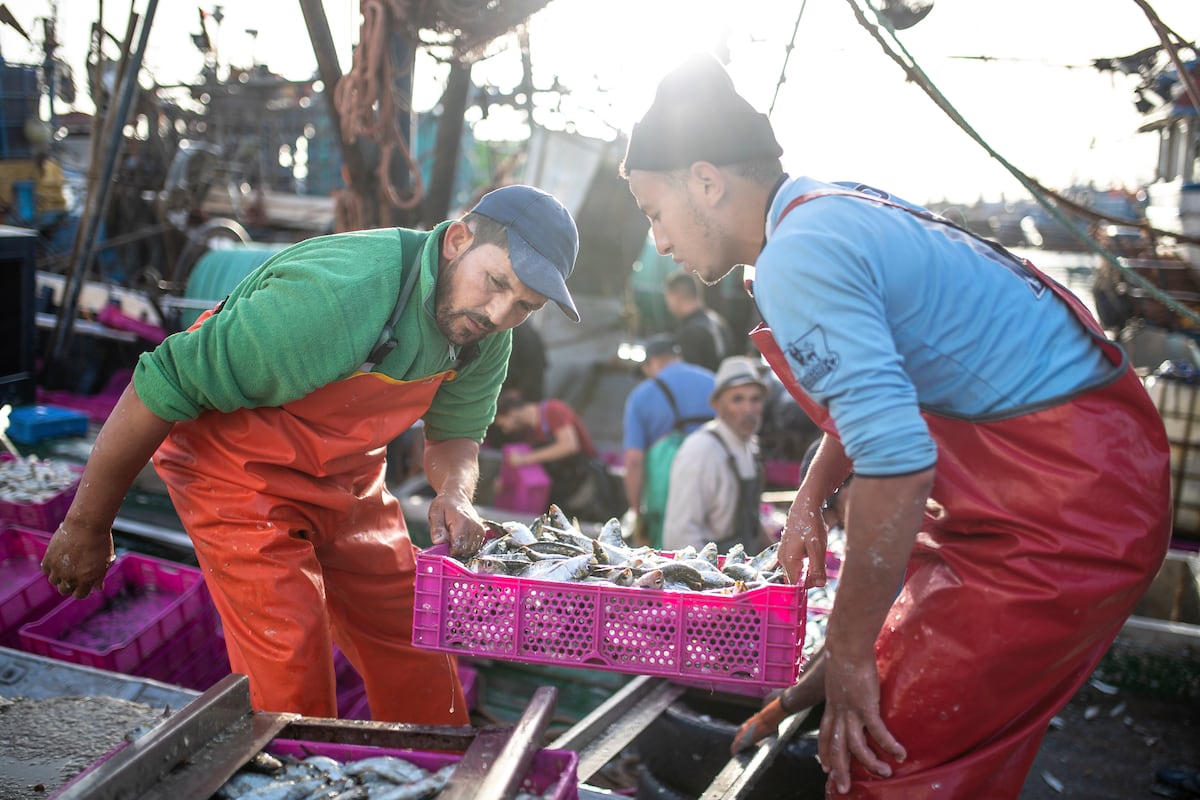It is just a paragraph almost at the end of the more than fifty points that make up the 15 pages of conclusions of the summit of European leaders held on Thursday in Brussels. But the brief phrases reaffirming the “strategic” relationship of the EU with Morocco after the ruling of the Court of Justice of the EU (CJEU) that overturned the 2019 fishing and agricultural agreements due to the lack of consent of the people of Western Sahara, carry a strong political message for Rabat and beyond.
On the one hand, they seek to reassure Morocco, a key partner for Europe in many fields, especially the immigration area that so occupies and worries the Twenty-seven now. “The European Council reaffirms the great value that the European Union attributes to its strategic partnership with Morocco and reiterates the need to cultivate and continue strengthening close relations in all areas of the Morocco-EU partnership,” they underline in their conclusions.
The European Council will continue to “define foreign policy in accordance with the Treaties,” adds the text negotiated by the European leaders, in which they limit themselves to “taking note” of the ruling of the European justice system, they dryly point out. With this, they wanted to make it clear, so that there are no doubts in the future in Morocco or other members of the international community, that foreign policy is set by the European Council and not the judges of Luxembourg, underlines a high European source. The Twenty-seven are concerned, he explains, that the CJEU ruling could lead some of the parties in this long and still far from resolved conflict to doubt the EU’s position, something that would set a dangerous precedent for other negotiations. or international agreements.
“The treaties say that the position is set by the Council and no one else,” emphasizes the source, who says she is “shocked” by the potential implications of the “problematic” CJEU ruling.
At the beginning of the month, Luxembourg’s highest court gave a boost to the Polisario Front – and with it a strong blow to Rabat and Brussels – by ruling that the trade agreements between the EU and Morocco signed in 2019 on fishing and agricultural products They “violated” the principles of self-determination, and the relative effect of the treaties because they did not have the consent of the people of Western Sahara. In this way, the judges endorsed a previous ruling from the General Court of the EU (TGEU, a kind of first instance) from 2021 that, at the request of the Polisario Front, annulled these agreements considering that they involved trading in products from Western Sahara, which which meant deploying its effects on a territory that the international community does not recognize as part of Morocco. Furthermore, the TGUE highlighted that the consent of the Saharawi people, as a third party involved, had not been obtained for these agreements.
While the Polisario Front celebrated the ruling, Rabat – which saw how it slowed down progress in the explicit recognition of its sovereignty over the territory in the international community that it has struggled to achieve in recent years – quickly urged “the Council, the Commission and EU Member States” to “take the necessary measures to respect their international commitments” and “preserve the achievements of the bilateral partnership.”
“The EU reiterates the great importance it attaches to its strategic partnership with Morocco, which is broad, deep and long-term,” replied no less quickly the President of the European Commission, Ursula von der Leyen, and the High Representative for Foreign Policy, Josep Borrell, in a joint statement. The leaders of the 27 member states have now wanted to ratify that position.
What is sought to avoid, explains the source, is that the impression is given that the EU has changed its political position on foreign affairs due to a judicial ruling on an “extremely controversial” situation and that this could be interpreted as putting At issue is the United Nations process that seeks to resolve this dispute that has been facing Morocco and Algeria for decades, where a good part of the Saharawi population administered by the Polisario Front remains a refugee since Morocco annexed Western Sahara in 1975.
The moment is also especially sensitive. Just before the Twenty-seven finalized the details of their common position in the conclusions, on the other side of the Atlantic, Staffan de Mistura, personal representative of the UN Secretary General António Guterres for the Western Sahara conflict, launched for the first time in two decades the proposal of a possible partition of the former Spanish colony; the south for the Sahrawis and the north would remain Moroccan territory. And back on this side of the ocean, this Friday, the Italian justice system has dealt a strong blow to the controversial – but celebrated by many European capitals – plan by the far-right Government of Giorgia Meloni to deport migrants rescued in the Mediterranean to Albania. The decision has been based, precisely, on another recent CJEU ruling that drastically limits which countries can be considered safe and whose citizens Italy can apply the rapid reception and expulsion protocol in Albania.
